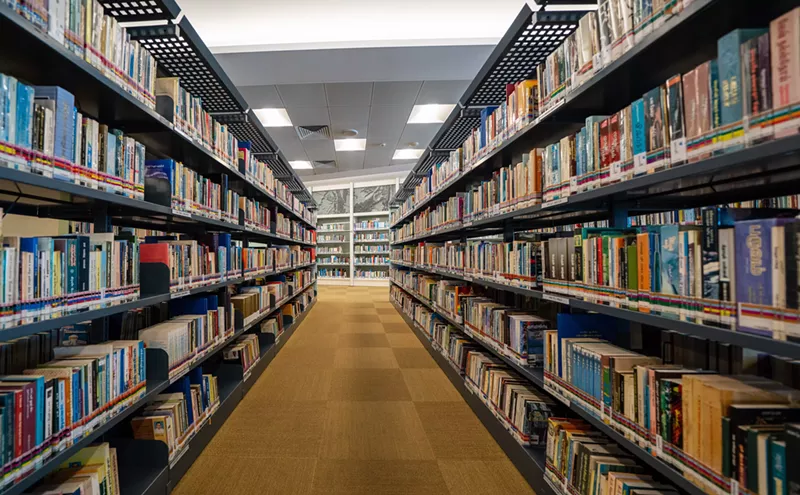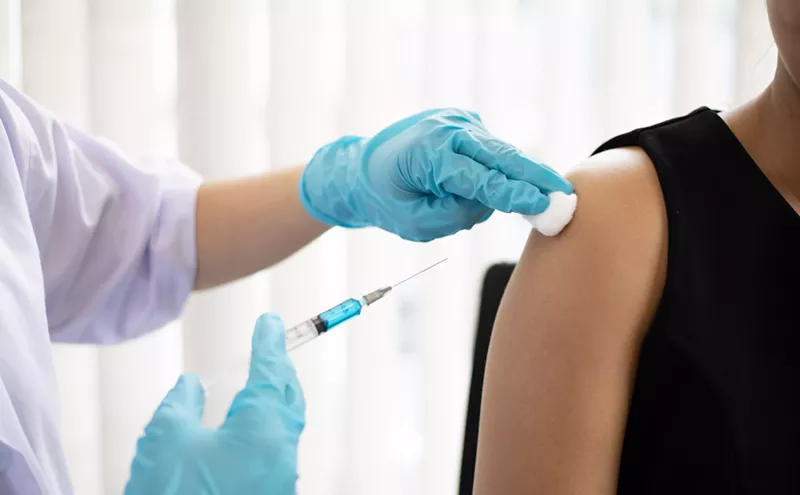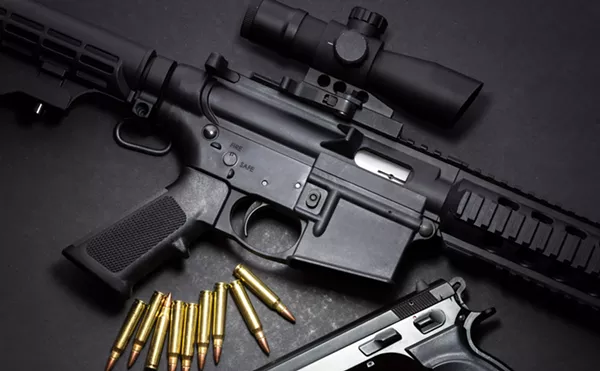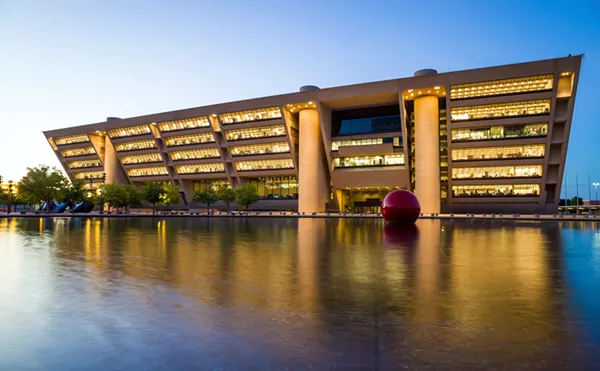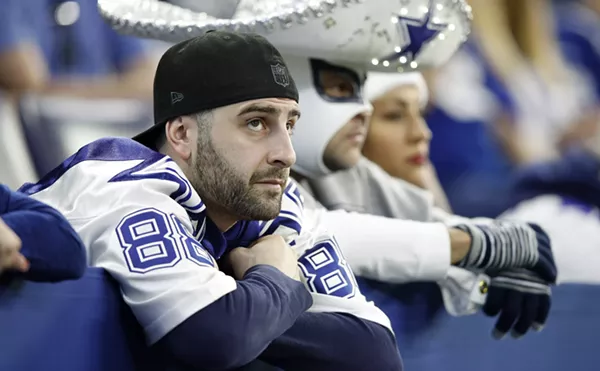A technicality? That's no good.
The rest of the story is something about the cops going to one house but spying suspicious activity at another house nearby, stumbling on 15 kilos of cocaine, grabbing some bad guys who are running around. Then some kind of technical problem comes up with a search warrant. So the D.A. puts all these major drug dealers back on the street.
The D.A. just sets them loose for no reason? I mean, I consider myself to be professionally paranoid, and even I couldn't believe that one.
So I spent last week looking into it. I think I was pretty unbiased going in. I considered on the one hand it could be a case of egregious malfeasance, but I tried to keep my mind open to the possibility it could also turn out to be a case of nefarious misfeasance on the other. I try not to pre-judge.
I talked to the D.A.'s office. Talked to the cops. Talked to the defense lawyers. Guess what. I don't think it's any of that. At the very worst, this might be a case of flatfeasance.
This was not a case of cops making good arrests, then getting stabbed in the back by lawyers. There was no way these arrests would have stuck. The D.A.'s decision to kick out these charges was logical and realistic. The sleazy political decision would have been to pursue the charges in order to look tough on TV, knowing in advance that everything will be thrown out before it ever gets to a jury.
So did the cops do bad? That's an even more complicated issue. It gets into the city's severe shortage of officers and the police chief's commitment to doing something about the crime rate anyway with what he's got.
Chief David Kunkle has said publicly in recent weeks that Dallas needs 800 more police officers in order to get to an effective ratio of cops per citizens. We have 2,972 sworn officers on the force now, according to the Police Public Information Office. So we need an increase of 27 percent in order to get to where the police force could significantly reduce crime.
Our courageous city council--busy sucking up to billionaires by granting them $7 million tax cuts they don't need--is giving Kunkle 50 more cops this year. Fifty. Instead of 800. That's an increase of less than 2 percent.
That's a joke. What can Kunkle do about the joke? Jack. So he's trying to do something else. A work-around.
These drug arrests grew out of a crack-down campaign the chief is calling "Operation Disruption." He takes 60 cops off regular duty and sends them into targeted areas to do a kind of intensive rolling law enforcement, turning over every rock to see what scurries out.
Maybe it just moves the crime around. But at least the criminals can't do crimes on the days they're busy scurrying. This time what scurried out was a $15 million drug ring, according to the account books the police found. The cops scurried in after them. Things got messy.
But, you know, you can look at this and say that things also definitely got disrupted. Come to think of it, I notice the chief isn't calling it "Operation Conviction."
Eric Mountin, chief of the organized crime section of the D.A.'s office, pointed out that the drug dealers freed from jail in this deal didn't exactly get their 15 kilos of cocaine back, or their $200,000 in cash and some dozen weapons seized from the scene.
"With the level of violence that has continued to escalate south of the border," Mountin said, "somebody's on the hook for all 15 kilos of coke, and somebody's going to have to pay for it. There's people getting killed for a lot less than this.
"In some respects they were probably safer where they were [in the jail] than where they probably are now," he said. "I mean, that's kind of crass, but it's a practical reality."
It is crass. It is a reality. I think it's a crass reality most of us can live with. These people make their money sucking down human souls.
In this case, there just never were going to be convictions, based on the way the police mismanaged their search and the subsequent arrests. And in order to call the issues here a technicality, you'd have to say the entire Constitution of the United States is a technicality, too. There was a reason we fought the Brits.
The Fourth Amendment protects our persons and our homes from search and seizure unless there is probable cause. Two and a quarter centuries of case law have defined probable cause and created a set of rules the police must follow. And rules are rules.
On September 27, the Operation Disruption cops--who are from the patrol division, not narcotics--were sent to investigate a complaint at a house on Jonesboro Avenue, about two and a half miles southeast of White Rock Lake between Ferguson Road and Interstate 30. While there, they noticed a house nearby where a number of nervous-looking Latino men were running around.
Here is where we get into trouble with "probable cause" and the justification for searching the nearby house. One sworn affidavit signed by police says the officers saw an amount of marijuana inside the back door of the nearby house, went in and found 15 kilos of cocaine and 137 kilos of marijuana inside. Most of the marijuana, according to this affidavit, was inside two locked freezers. At a bond hearing, a police officer testified that all of the cocaine was hidden and not in plain view.
But in another sworn document, police said they entered the house because they smelled marijuana through the open door, not because they saw it. They said three kilos of cocaine were in plain view, and they said the marijuana was scattered all over the house.
The two sworn statements diverge widely as to how many people were running around and which ones were actually inside the house. I also saw a photograph of a splintered backdoor casing that sure looked as if somebody had kicked it in.
Ralph DelaGarza, one of several defense lawyers in the case, said the police would have been in an awkward position had the case gone forward. "I think our next step was to have what's called an examining trial," he said, "and start committing people to what happened. What you had in this case, from the officers' standpoint, is three different version of the same thing."
Can't all be true. This case was never going to make it to a jury. Too much of a mess. A judge would have had to kick it out long before it got that far just on probable cause issues.
But why was this such a mess? I asked the police department about the reforms called for in the Fake Drugs investigation. Why would mistakes like these still be made if the reforms had taken effect?
Deputy Chief Julian Bernal, over the Narcotics Division, pointed out to me that the reforms were all about narcotics. And narcotics only got in on this case after the fact: "The Narcotics Division was called out to the location after drugs and other evidence were found at the scene," he said.
Bernal conceded there are problems with the various affidavits: "There are some differences in the wording of some of the documents regarding the affidavit for the search warrants and the arrest reports."
He said the department is taking those problems seriously: "There is an investigation going on by the Public Integrity Unit to determine exactly what happened. I don't know whether there were probable cause issues or not, because we're still investigating, but that's one of the issues were certainly going to look at."
He told me narcotics has undergone major changes since Fake Drugs. Significant personnel changes and shifts have taken place, he said. And there have been many policy and procedural changes. "There were 29 recommendations made by the panel," he said, "and all except one were implemented."
So this was an Operation Disruption problem. I spoke with David Davis, a defense attorney. Davis has nothing to do with this case, but he has been an insightful analyst and critic of the police department in the past. I asked him why the Operation Disruption officers couldn't have been expected to do better with a major cocaine and marijuana bust. He said it all goes back to training and supervision.
You want to keep the patrol officers in the academy long enough to teach them to do right. But even after they graduate, you still need all kinds of supervisory personnel to monitor what they do in the field.
People. Personnel. Things would run much more smoothly with 800 more cops in Dallas. In the meantime, Kunkle is trying to do what he can with what he's got.
I feel better knowing that the D.A. and the defense lawyers and the cops didn't just turn a bunch of serious drug dealers loose for fun. The issues here were not technicalities. Serious mistakes were made. But I also feel better knowing a $15 million drug operation got messed up.
We're kind of between a rock and a hard place. We don't want to scrap the Constitution, or we'll all wind up with fake drugs in our car trunks and the city council sentencing us to work on Ray Hunt's estate for the rest of our lives.
But we don't want the drug dealers to have carte blanche, either. The cops are fighting crime and corruption with smoke and mirrors. That's better than not fighting crime.
I know what I need to do. Stop watching Channel 8.



